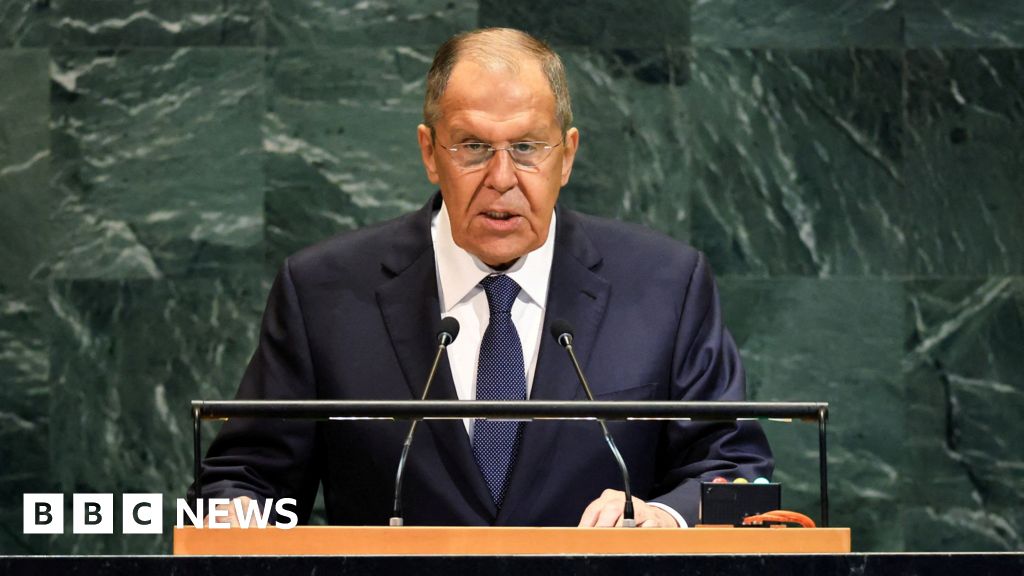

Russia's foreign minister has said his country had no intention of attacking EU or Nato member states - but warned of a "decisive response" to any "aggression" directed towards Moscow.
In a wide-ranging speech delivered at the UN General Assembly on Saturday, Sergei Lavrov said threats against Russia by Western countries were becoming "increasingly common".
He also took aim at Israel, saying that while Russia condemned the 7 October 2023 attacks by Hamas, there was "no justification" for the "brutal killings" of Palestinians in Gaza, or for plans to annex the West Bank.
Israel has previously said its Gaza operation was necessary to defeat Hamas.
At least 65,926 people have been killed by Israeli strikes, according to the Hamas-run health ministry, while about 1,200 people were killed and 251 others were taken hostage in the 7 October attacks.
He decried Israeli aggression towards other countries in the Middle East, which he said threatened to "blow up" the region.
Israel has used its mission to eliminate Hamas to justify air strikes on other Middle Eastern countries, including Qatar.
On Iran, Lavrov accused Western powers of sabotaging diplomacy after a last-minute bid led by Russia and China to delay sanctions being reimposed failed on Friday. The Russian foreign minister said the move was "illegal".
The sanctions came into force at 00:00 GMT on Sunday.
Regarding tensions in Europe, Lavrov said: "Threats of force against Russia, accused of practically planning an attack on the North Atlantic Alliance [Nato] and the European Union, are becoming increasingly common. President [Vladimir] Putin has repeatedly debunked such provocations.
"Russia has never had and does not have such intentions, but any aggression against my country will be met with a decisive response."
Moscow has denied responsibility after Denmark said drones were flown over its airports in a co-ordinated incursion into its airspace. Denmark said the incidents appeared to be the work of a "professional actor" but that there was no evidence of Russian involvement.
Earlier, Estonia accused Russia of violating its airspace with warplanes, while a Nato air defence mission was recently carried out over Poland as part of an allied response to Russian drone incursions into Polish airspace.
As a backdrop to all this, Russia's full-scale invasion of Ukraine continues in its third year, with Moscow launching one of the largest overnight drone attacks on Saturday.
Donald Trump has gone as far as to say that Nato nations should shoot down Russian planes in their airspace, while the alliance itself has warned it would use "all necessary military and non-military tools" to defend itself following the recent incursions.
Trump has also appeared to shift his position on Russia's war with Ukraine, saying this week that Kyiv could "win all of Ukraine back in its original form".
Lavrov addressed the US-Russian relationship in his speech on Saturday, saying: "In the approaches of the current US administration, we see a desire not only to contribute to ways to realistically resolve the Ukrainian crisis, but also a desire to develop pragmatic cooperation without adopting an ideological stance."
In a further criticism of the West, Lavrov questioned the timing of recent recognition by some countries, including the UK and France, of a Palestinian state - saying that it seemed they had waited so long because they hoped "there would be no one and nothing left to recognise".

16 PerFlyer